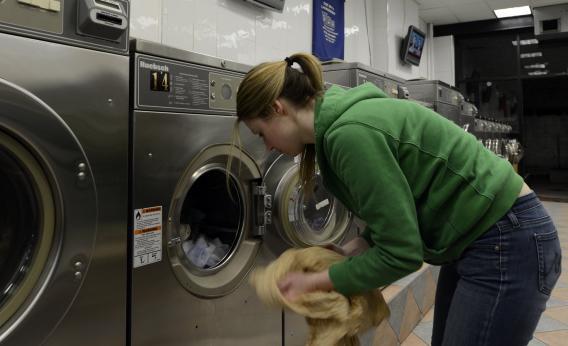To celebrate its 110th anniversary, the magazine Popular Mechanics has published a fascinating list of 110 predictions for the next 110 years, divided up by the decades in which they will occur. For instance, within the next 10 years, PM believes that translation technology will become so sophisticated and cheap that smart phones will turn into universal translators so “people will be fluent in every language.” The whole list is worth a read, but here are some of our favorites that could have a real impact on women’s lives:
Nanoparticles will make chemotherapy far more effective. By delivering tiny doses of cisplatin and docetaxel right to cancerous cells, the mini messengers will significantly reduce the pain and side effects of today’s treatments.
In recent years, guidelines on breast cancer treatment have changed so that fewer women have courses of chemotherapy after surgery, in part because the side effects are so traumatic, and because of findings that suggest chemotherapy is helpful to only 15 percent of patients who receive it as a follow-up. But if chemotherapy could be more targeted and less toxic, it could help make breast cancer treatment a less intimidating prospect. PM predicts this could be reality by 2022.
Your genome will be sequenced before you are born. Researchers led by Jay Shendure of the University of Washington recently reconstructed the genome of a fetus using saliva from the father and a blood sample from the mother (which yielded free-floating DNA from the child). Blood from the umbilical cord later confirmed that the sequencing was 98 percent accurate. Once the price declines, this procedure will allow us to do noninvasive prenatal testing.
Right now, adults can send in saliva samples and have their own DNA sequenced by genetic testing services like 23 And Me. But the new tests will allow parents to know the actual DNA profile of the fetus they just created. This is not without its downsides: As Harriet A. Washington wrote in Slate earlier this fall, the availability of such testing could also move up unnerving conversations about whether to terminate a pregnancy, or how to care for a potentially disabled child, even as they don’t provide absolute certainty about the outcome of a pregnancy. PM forecasts that these tests will be normal procedure in the next ten years.
Your clothes will clean themselves too. Engineers in China have developed a titanium dioxide coating that helps cotton shed stains and eliminate odor-producing bacteria. To revive your lucky shirt after a night of poker, you need only step into the sun.
Now if only this technology could be extended to the kitchen sink as well as the laundry room. The housework gap between women and men continues to close, but it hasn’t been eliminated yet—the Bureau of Labor Statistics found earlier this year that American women do 2.6 hours of housework per day while men do 2.1 hours. If technology could cut down on the minutes we need to spend on household tasks period, it might be easier to split them equitably, and for partners to spend more time on each other, or on other pursuits. The self-cleaning clothes part, at least, could be a reality by 2022.
Nurse Jackie will be a robot. By 2045, when seniors (60-plus) outnumber the planet’s youth (15 and under) for the first time in history, hospitals will use robots to solve chronic staffing issues. Expect to find the new Nightingales lifting patients and pushing food carts. Engineers at Purdue University are thinking even bolder—designing mechanical scrub nurses that respond to hand gestures during surgery.
Though the number of men in nursing professions is increasing, it remains a field dominated by women, as is also the case with home health aides. Just as mechanization (as well as outsourcing) hurt male employment in manufacturing, the rise of robotic nurses could push down employment in a sector where women have long been dominant. It’s always fun to think that the future will open up new and exciting employment fields. But it’ll make other kinds of jobs obsolete, and women should learn from the decimation of some male-dominated fields as we make our career plans for the future. PM thinks Nurse Jackie will be delivering your post-op meal by 2062.
